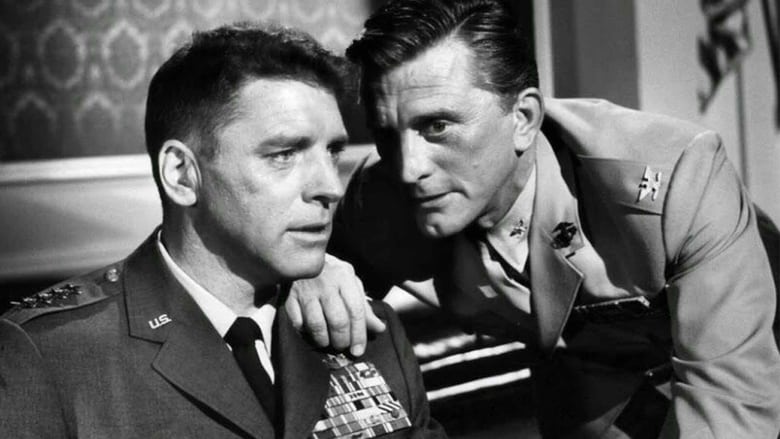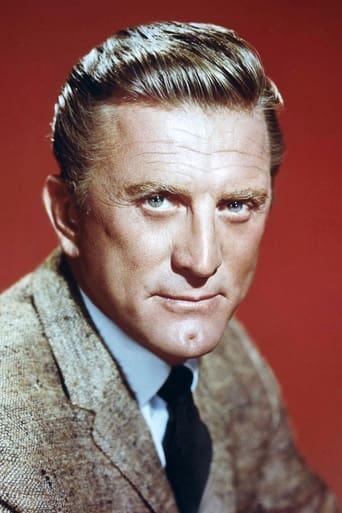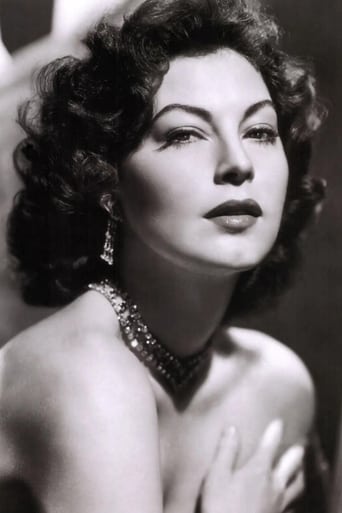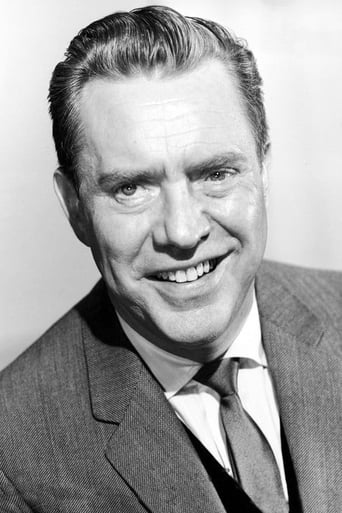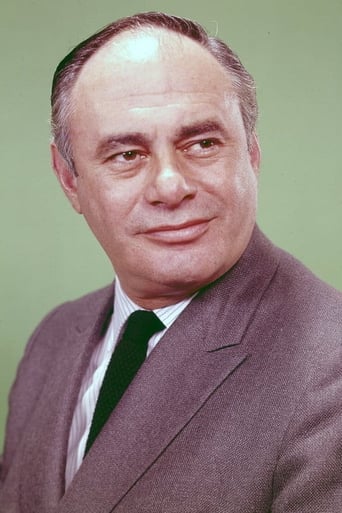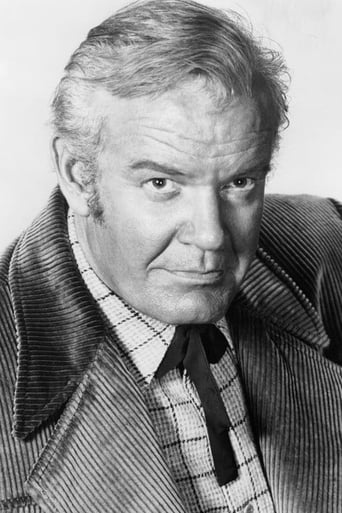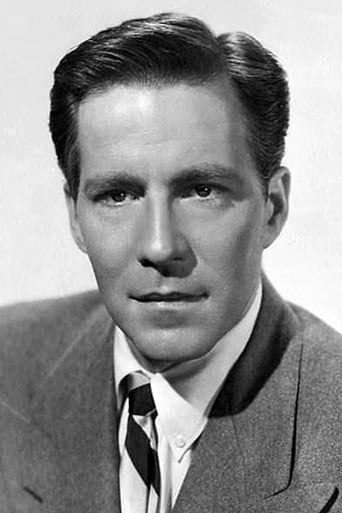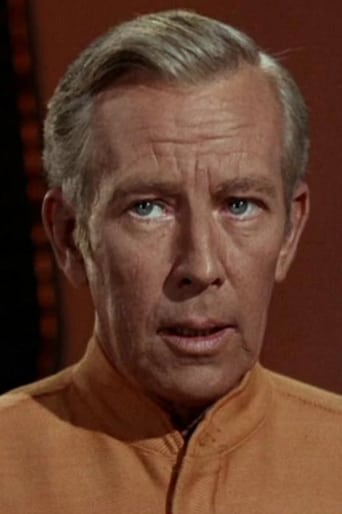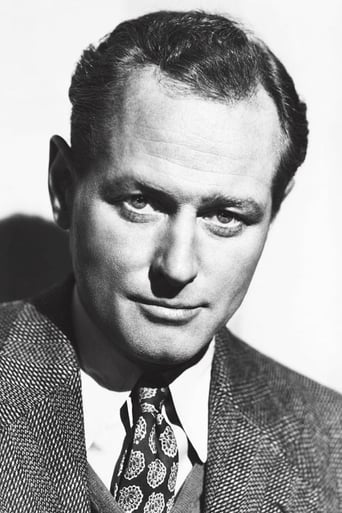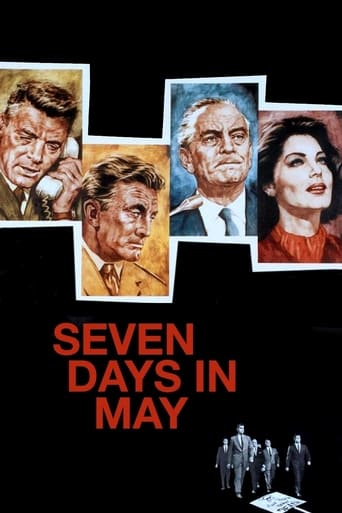
Seven Days in May
February. 12,1964A U.S. Army colonel alerts the president of a planned military coup against him.
Similar titles
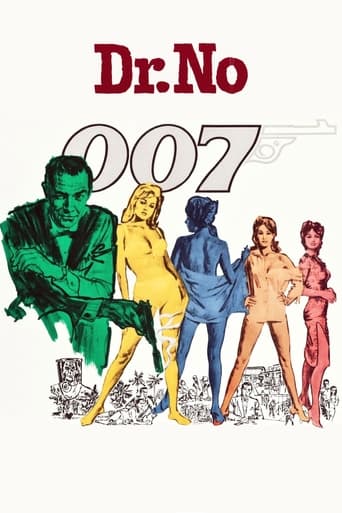

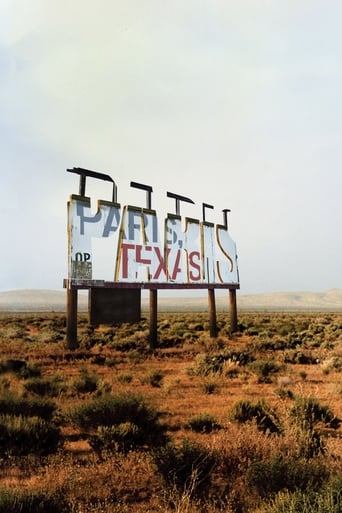
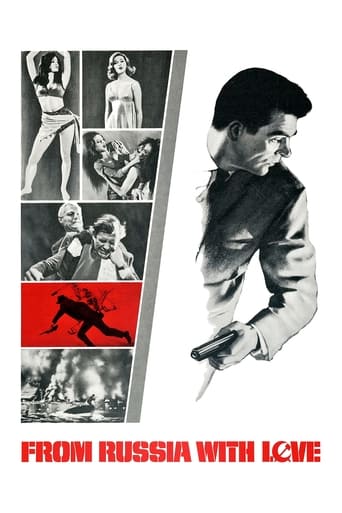
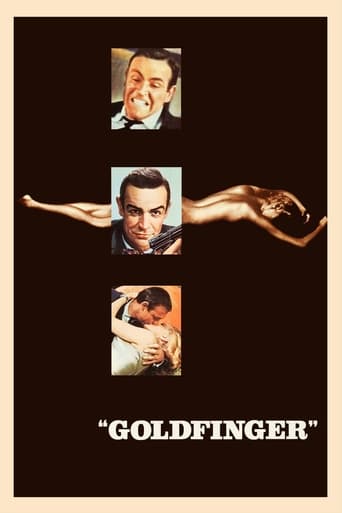


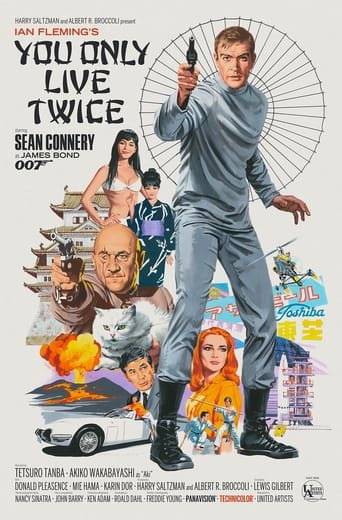
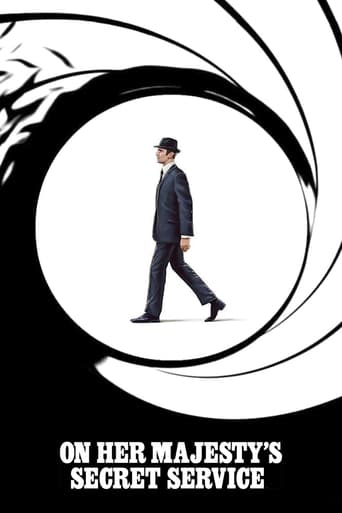

You May Also Like
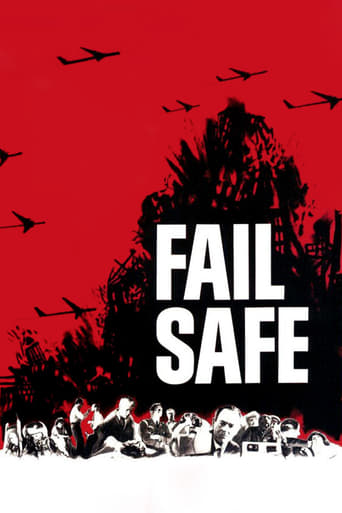
Reviews
I like the storyline of this show,it attract me so much
Wow! What a bizarre film! Unfortunately the few funny moments there were were quite overshadowed by it's completely weird and random vibe throughout.
True to its essence, the characters remain on the same line and manage to entertain the viewer, each highlighting their own distinctive qualities or touches.
By the time the dramatic fireworks start popping off, each one feels earned.
Read that Spencer Tracy was originally considered for the POTUS.Would never have watched it,he was too old looking,March did a fine job,as always,and he had a fine supporting cast.Hated Burt Lancaster as the head of a coup attempt which could've succeeded,had he adequate back-up.That Kirk Douglas let Lancaster have the role he really wanted showed how dedicated he was to the production.O'Brien good actor,but so many more deserving Academy Award worthy performances which never are acknowledged.Once Macready strolls on the scene,that's when I started enjoying this film.That his character is named Chris Todd makes me think of our (CT) esteemed US Senators Tom & Chris Dodd,who served CT for many years.Ava Gardner,IMHO,is the only weak link,a faded beauty queen as Scott's ex-mistress (love Todd's "woof" while reading the love letters Lyman refused to throw back at Scott).And to those who harp on Macready's Brown University education,my next door neighbor is a Brown grad,and New Englander like George,and neither one of them in real life was cold or aloof,actually both very nice gentlemen!Macready's characters were cold/calculating,as were Basil Rathbone's,but neither man was like that off screen.
I was a junior in high school when this movie came out. My friends and I had gotten used to seeing kind of fluffy films that showed in our local theater. We weren't ill behaved, but our attention wasn't always on the film. Movies with intense plots got some of the same treatment. I remember this film because I was mesmerized from the first scene. The plot was intricate and the acting superb. I remember telling my friends to be quiet because I was engrossed. This is the story of a coup within the U.S. government. The President had signed a disarmament treaty with the Soviet Union. This led to a mutinous response from the head of the Joint Chiefs of Staff. Soon it was determined that the President must die as the only way to stop what he was doing. We are immersed in the intrigue of the plot to kill the chief of state. Outstanding movie I could watch a hundred times.
The American President Lyman (Fredric March) with low approval ratings has passed a divisive nuclear disarmament treaty. The head of the Joint Chiefs General Scott (Burt Lancaster) opposed the treaty and is organising a secret coup with some of his supporters. His aide Colonel Jiggs Casey (Kirk Douglas) informs the President of the behind the scenes manoeuvring and Lyman instructs some of his trusted men to get evidence of the conspirators plans.Director John Frankenheimer loved a conspiracy thriller. Here he paints the conspirators as misguided and maybe the President as too honourable and principled.The film contains too much talking heads at times and it suffers from it during the showdown between Lancaster and March. The President actually does come across as weak and maybe proves Lancaster's point when in reality a more forceful resolution was required by the Lyman.The film is still masterful, full of intrigue and tension but it does move slowly at the beginning and has a major flaw. If the President was unpopular how did he manage to get the Treaty ratified by Congress? As the treaty is approved by Congress then it make General Scott's action more murkier and he should had been called out more strongly for his treachery.
"The crimes of the United States have been systematic, constant, vicious, remorseless, but very few people have actually talked about them. You have to hand it to America. It has exercised a clinical manipulation of power worldwide whilst masquerading as a force for universal good. It's a brilliant, even witty, highly successful act of hypnosis." - Harold Pinter "Why has there never been a coup in Washington D.C.? Because there is no U.S. Embassy in Washington D.C." - Ira Kurzban Directed by John Frankenheimer, "Seven Days in May" stars Frederic March as Jordan Lyman, the President of the United States. Lyman has signed a disarmament treaty with the Soviet Union. Despite this treaty being widely unpopular, Lyman stands by his decision. "Eventually we would have blown each other up," he argues.Opposing Lyman is the demagogic General James Scott (Burt Lancaster). Convinced that the President's policies will endanger Americans, Scott hatches an elaborate plan: in conjunction with sympathetic Armed Forces personnel, he will depose the President. Scott's aide, Colonel Jiggs Case (Kirk Douglas), views Scott's actions as both unconstitutional and contrary to their military oaths. He assists Lyman in countering Scott's coup.John Frankenheimer could do little wrong in the 1950s and 60s. Like most of his work from this period, "Seven Days in May" (1964) is thus marvellously directed, boasting fine black and white cinematography and a script by Rod Serling which is a cut above most "political thrillers" of the era. Elsewhere Frankenheimer utilises guerrilla techniques, stealing shots of aircraft carriers, bluffing his way into government buildings, and indulging in his love for bravura camera-work. Whilst his film does eventually degenerate into sanctimonious preaching, it consistently delivers remarkable moments. One eight minute sequence, in which Case reveals news of the coup to Lyman, is particularly tense.Politically, "Seven Days in May" is mostly hokey. The real danger, according to Frankenheimer, is from the American Right. Red Scaremongers, the forces of Mccarthyism, the Military Industrial Complex and manic "patriots" are those who endanger Americans most. Presidents, meanwhile, are voices of reason, progress and levelheaded geopolitical manoeuvring. In reality, of course, Western warmongers and politicians are largely in mad lockstep. The film's premise - "can it happen?" (based on the 1933 Business Plot) - is thus largely irrelevant; "it's" always happening."Seven Days in May" reverses history in other ways: after Stalin's death, the US repeatedly scuttled Soviet disarmament proposals. Its own proposals – most notably the Baruch Plan – were meanwhile designed to maintain US superiority. Frankenheimer's last act then becomes a polemical attack on the "evils of coups" and the "dishonorable ways in which coups subvert the democratic process", a quasi-religious process which "America proudly stands for". The irony, of course, is that no nation has been behind more anti-democratic coups than the United States (currently still cooking up yet more coups in the Ukraine, Venezuela, Honduras, Ecuador, Syria, Libya, Somalia, Gambia, Congo, Ethiopia etc). Upward of 80 percent of the nations on the planet have been repeatedly couped by "democracy loving US Presidents", these countries ranging from first world nations (Greece, Italy, Australia etc) to most third world nations across Latin America, Africa, the Middle East and Asia. All these coups have seen the US coup-machine actively siding with or putting into power reactionary forces, dictators, fascists or terrorist groups, and all have led to severe repression, disappearances, extra-judicial executions, massacres, armed conflict, torture, corruption, extreme poverty, inequality, the "restructuring of national resources", the "restructuring of labour laws" and the retarding of democratic aspirations. America's obsession with asserting both "hard" and "soft" power has led to the creation of an entire industry engaged in the business of regime change. Such "private" companies and consultants are hired to carry out Washington's wishes on the world stage, creating front organizations, carrying out covert actions, and acting as a conduit for US government propaganda worldwide. The point? Frankenheimer's film may be interesting, but it's also a kind of historical inversion.7.9/10 – Worth one viewing.
Top Streaming Movies











